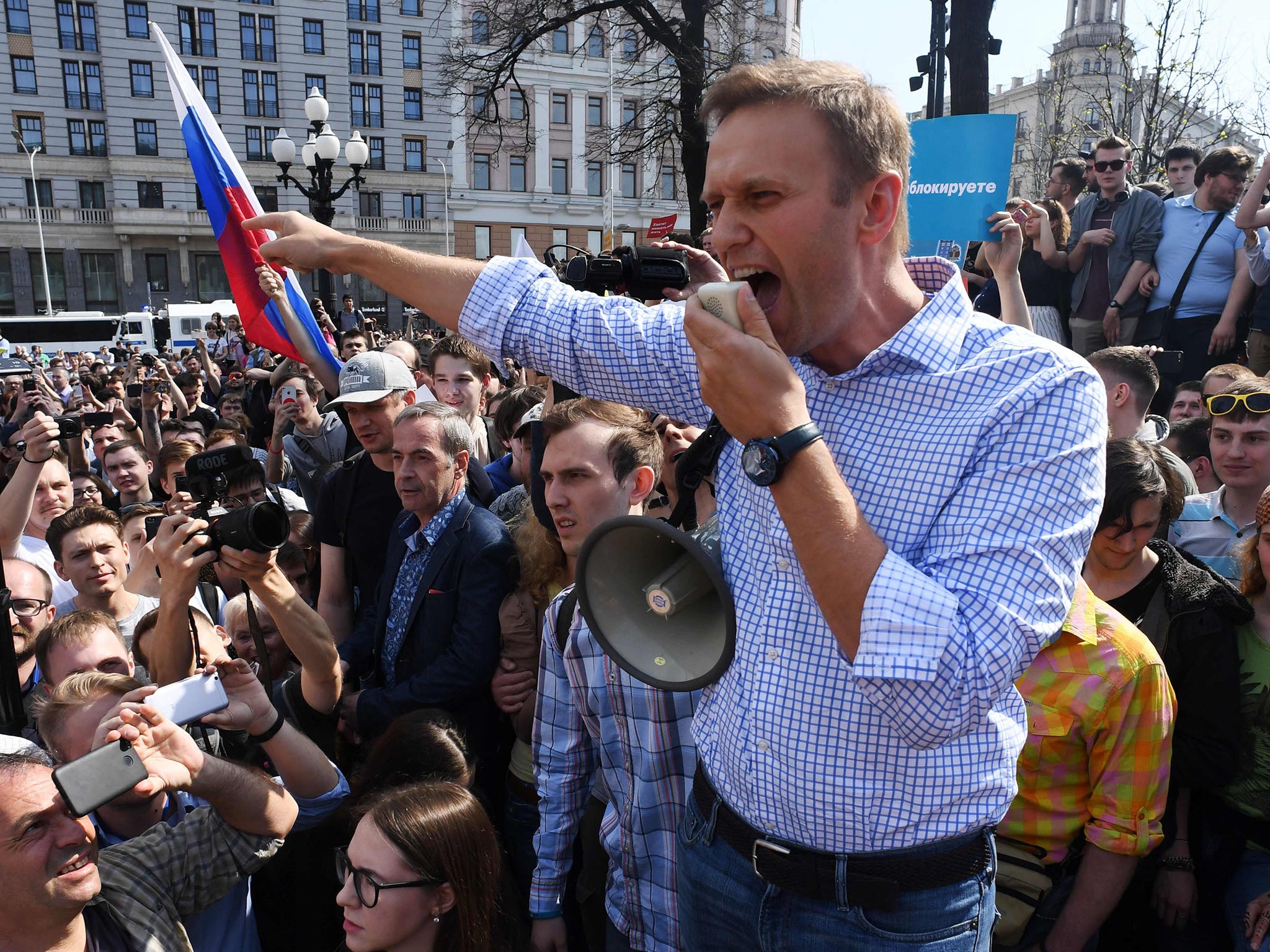Russian opposition leader Alexei Navalny detained in Moscow
Reasons behind 42-year-old's detention unclear

Your support helps us to tell the story
From reproductive rights to climate change to Big Tech, The Independent is on the ground when the story is developing. Whether it's investigating the financials of Elon Musk's pro-Trump PAC or producing our latest documentary, 'The A Word', which shines a light on the American women fighting for reproductive rights, we know how important it is to parse out the facts from the messaging.
At such a critical moment in US history, we need reporters on the ground. Your donation allows us to keep sending journalists to speak to both sides of the story.
The Independent is trusted by Americans across the entire political spectrum. And unlike many other quality news outlets, we choose not to lock Americans out of our reporting and analysis with paywalls. We believe quality journalism should be available to everyone, paid for by those who can afford it.
Your support makes all the difference.Russian opposition leader Alexei Navalny has been arrested and detained in Moscow, his spokeswoman has said.
Kira Yarmysh revealed Mr Navalny had been taken to a police station on Saturday morning. But, writing on Twitter, she said reasons for his detention had not been made clear.
It is understood that he has now been transferred to hospital with a suspected broken finger.
He had recently been preparing for demonstrations on 9 September against plans to increase the age at which citizens can claim a pension.
The 42-year-old – who has been jailed repeatedly for organising anti-Kremlin protests – was barred from running in Russia's presidential election in March under what he says were false pretences.
He called for a nationwide boycott of the vote, which president Vladimir Putin went onto win overwhelmingly.
Mr Navalny was last sentenced to 30 days in prison in May for his role in organising nationwide demonstrations against Mr Putin.
He had called for protests in more than 90 cities and towns against the increasingly autocratic rule of the president. The slogan “Putin is not our tsar” was widely used.
Soon after the 18 March election, Mr Navalny’s team told The Independent it would be focusing on “building agility and strength”, in anticipation of any future opportunity.
"However stable it [the Russian government looks] looks, the current system is growing increasingly fragile, and it faces many challenges," said exiled ally Vladimir Ashurkov. "At some point there will be a crisis that will inevitably lead to political liberalisation. We are preparing for this moment.”
Subscribe to Independent Premium to bookmark this article
Want to bookmark your favourite articles and stories to read or reference later? Start your Independent Premium subscription today.
Join our commenting forum
Join thought-provoking conversations, follow other Independent readers and see their replies
Comments